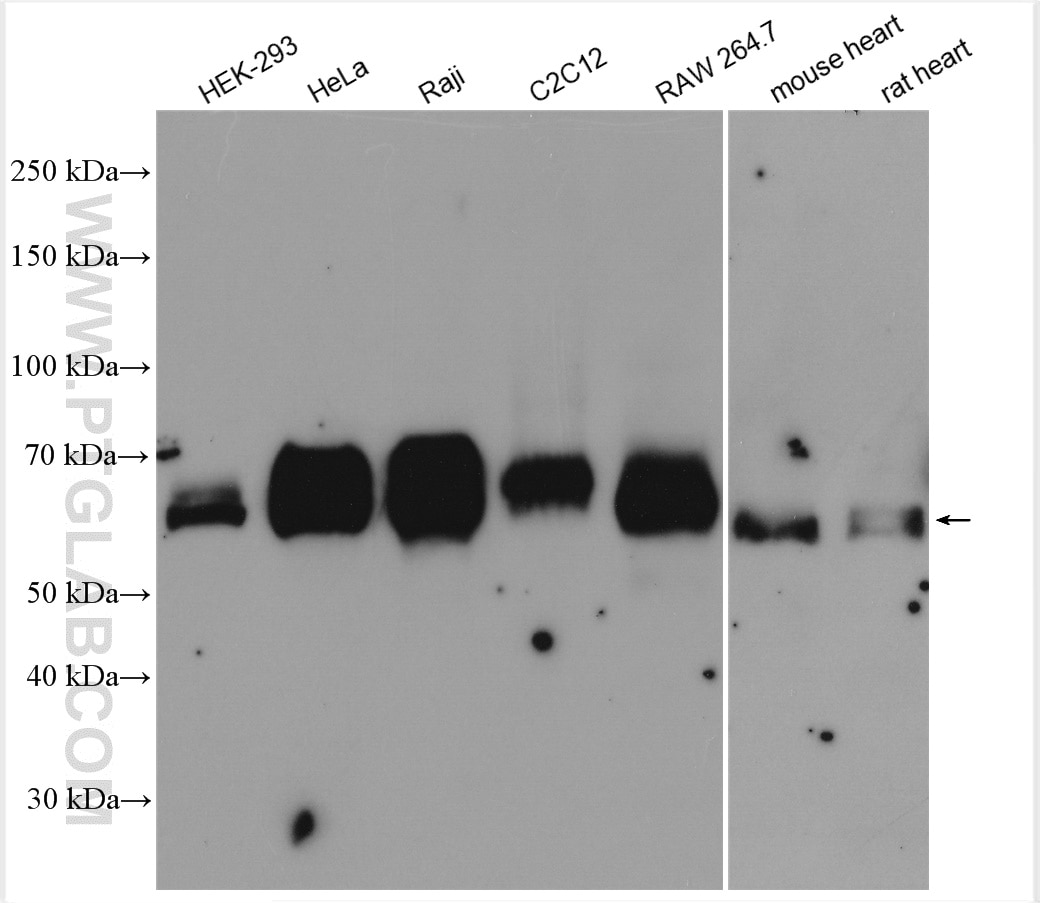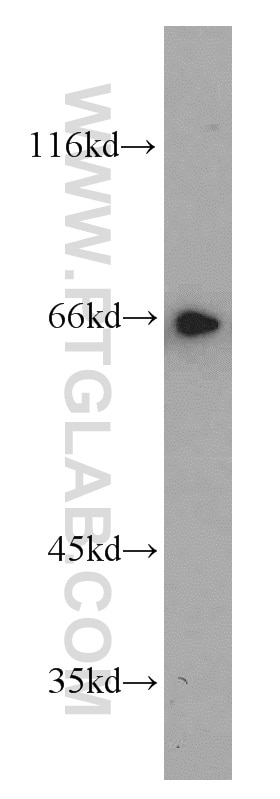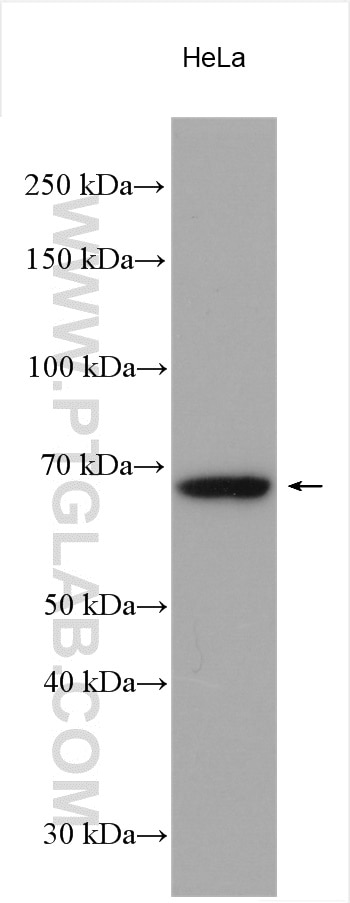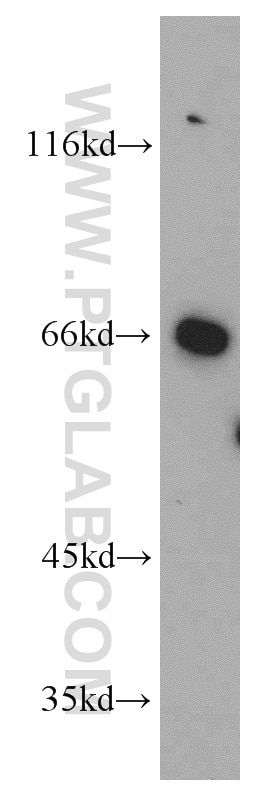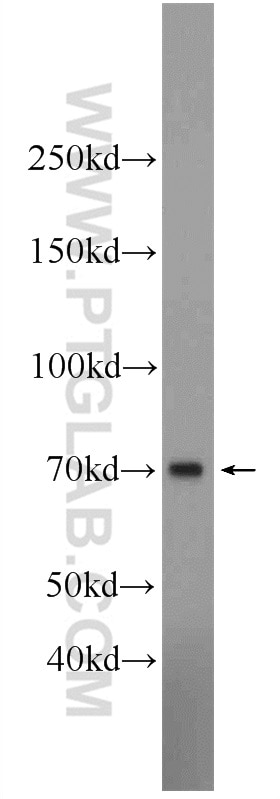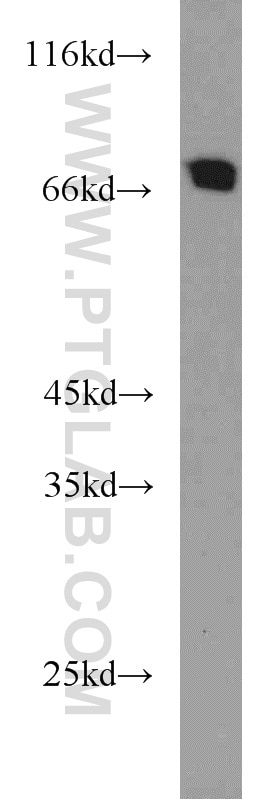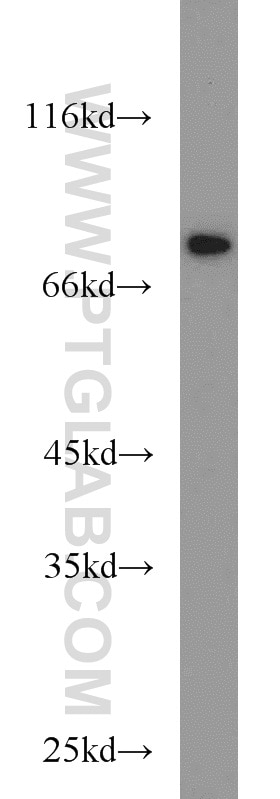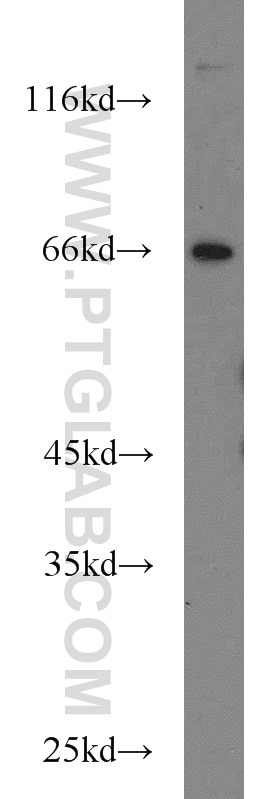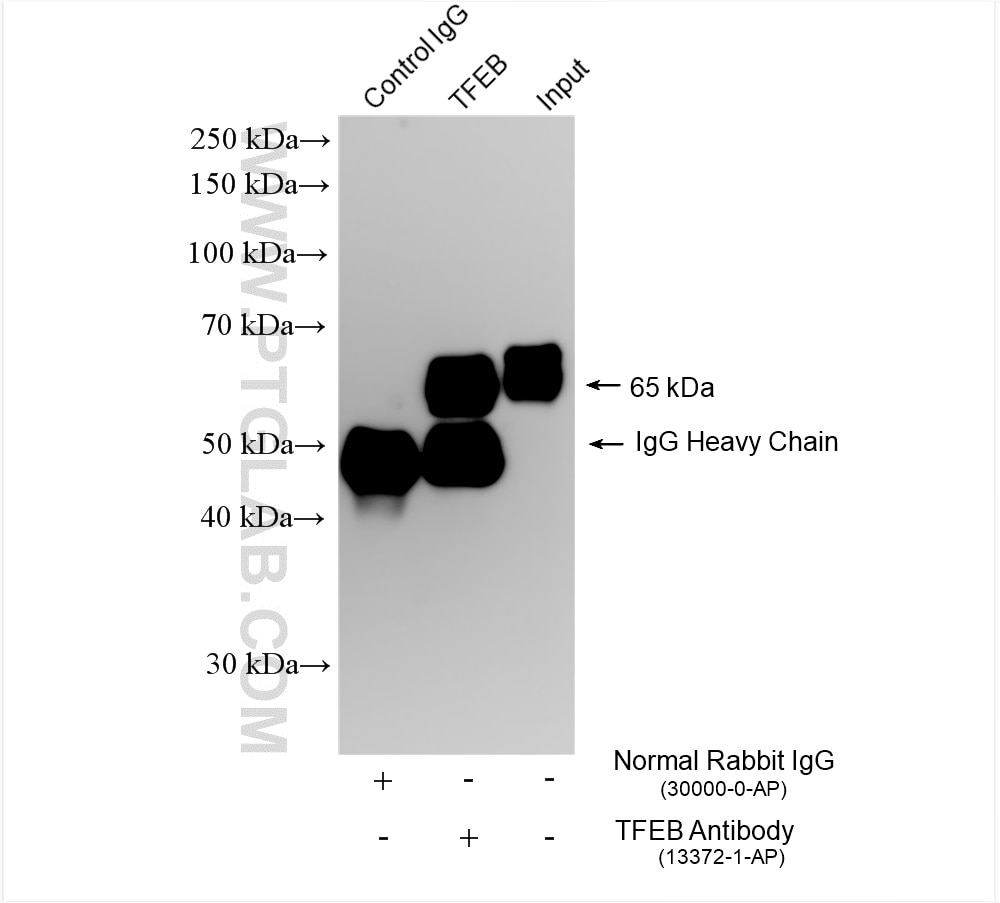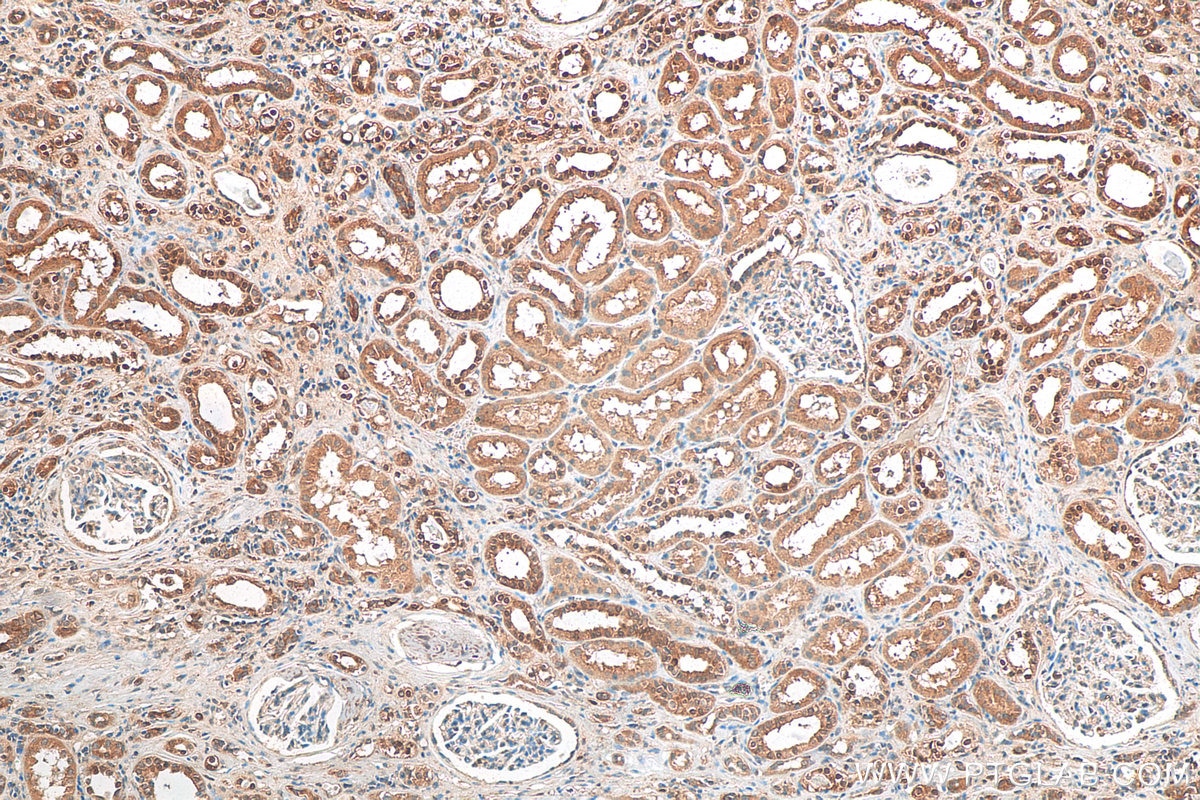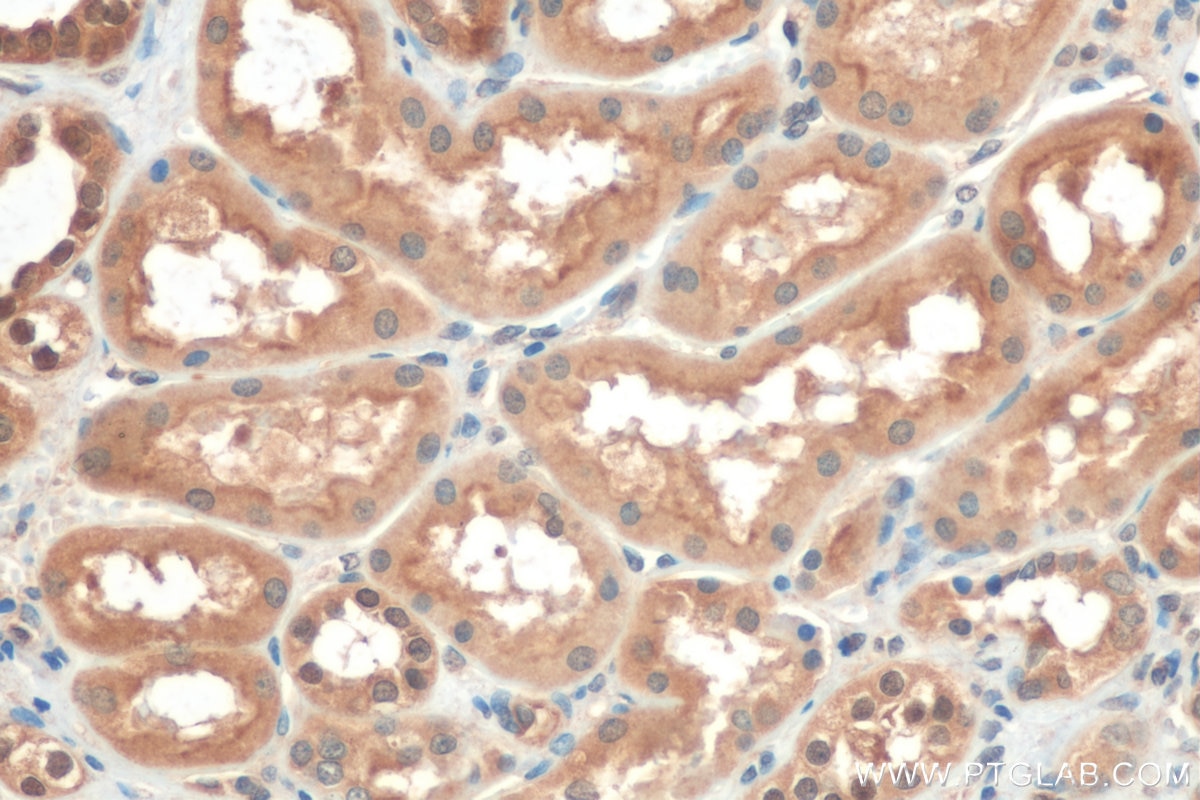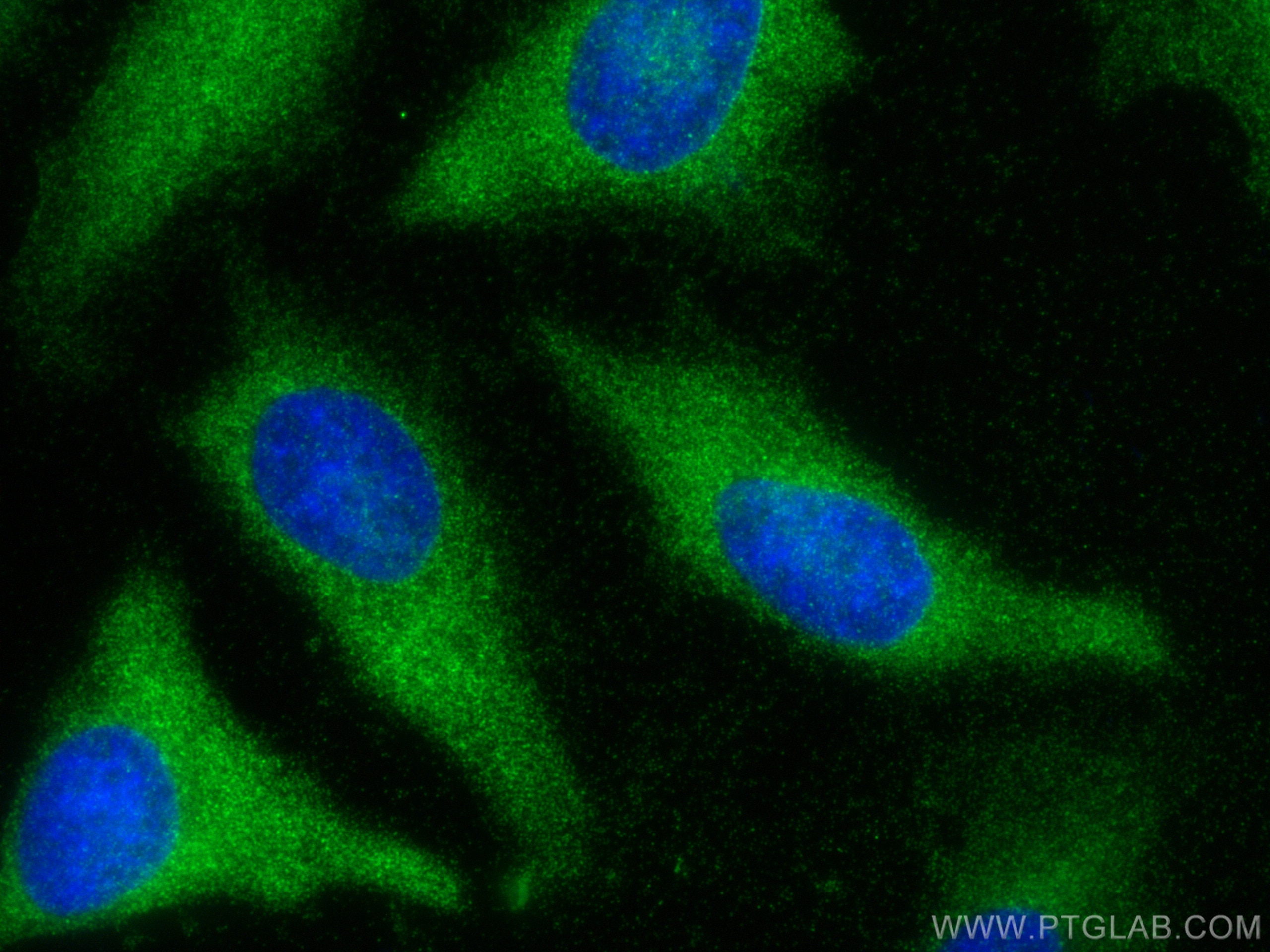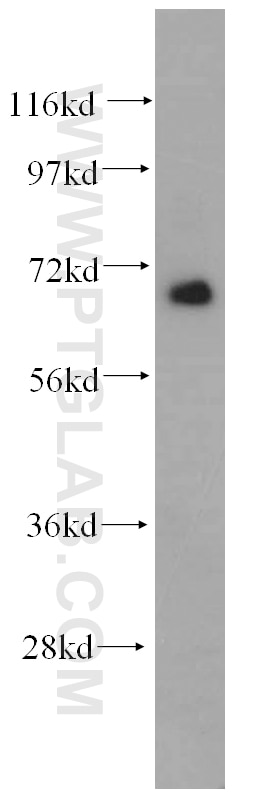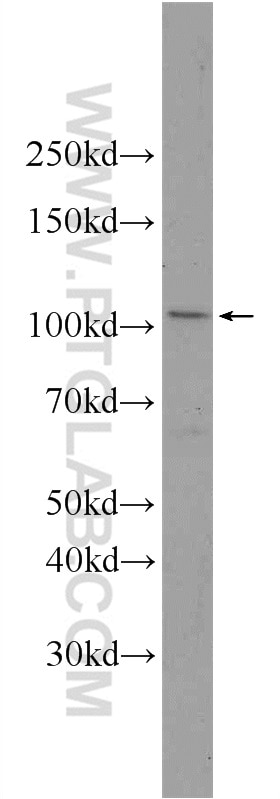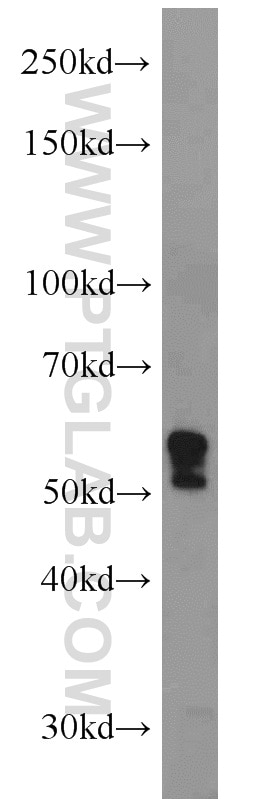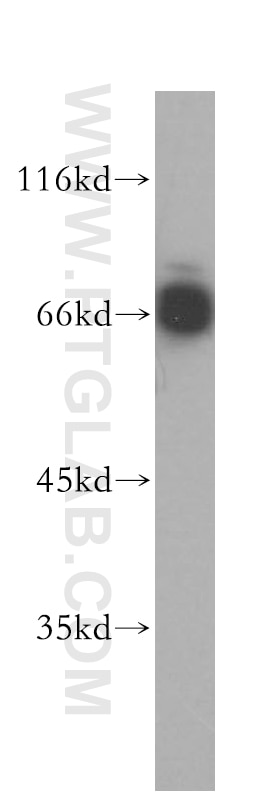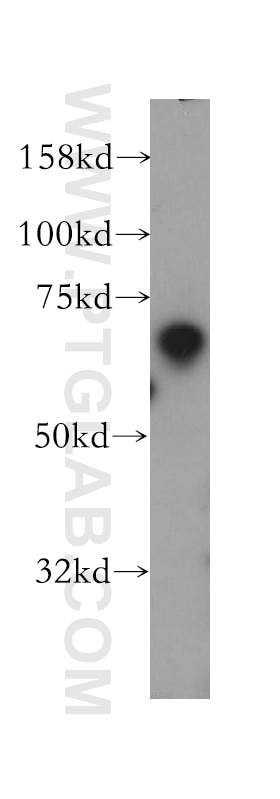- Featured Product
- KD/KO Validated
TFEB Polyklonaler Antikörper
TFEB Polyklonal Antikörper für WB, IHC, IF/ICC, IP, ELISA
Wirt / Isotyp
Kaninchen / IgG
Getestete Reaktivität
human, Maus, Ratte und mehr (3)
Anwendung
WB, IHC, IF/ICC, IP, CoIP, ELISA, Wes Immunoassay
Konjugation
Unkonjugiert
Kat-Nr. : 13372-1-AP
Synonyme
Galerie der Validierungsdaten
Geprüfte Anwendungen
| Erfolgreiche Detektion in WB | A549-Zellen, C2C12-Zellen, HEK-293-Zellen, HeLa-Zellen, humanes Plazenta-Gewebe, Jurkat-Zellen, Mausherzgewebe, NIH/3T3-Zellen, Raji-Zellen, Rattenherzgewebe, Rattenhirngewebe, RAW 264.7-Zellen |
| Erfolgreiche IP | Raji-Zellen |
| Erfolgreiche Detektion in IHC | humanes Nierenzellkarzinomgewebe Hinweis: Antigendemaskierung mit TE-Puffer pH 9,0 empfohlen. (*) Wahlweise kann die Antigendemaskierung auch mit Citratpuffer pH 6,0 erfolgen. |
| Erfolgreiche Detektion in IF/ICC | HeLa-Zellen |
Empfohlene Verdünnung
| Anwendung | Verdünnung |
|---|---|
| Western Blot (WB) | WB : 1:1000-1:6000 |
| Immunpräzipitation (IP) | IP : 0.5-4.0 ug for 1.0-3.0 mg of total protein lysate |
| Immunhistochemie (IHC) | IHC : 1:50-1:500 |
| Immunfluoreszenz (IF)/ICC | IF/ICC : 1:50-1:500 |
| It is recommended that this reagent should be titrated in each testing system to obtain optimal results. | |
| Sample-dependent, check data in validation data gallery | |
Veröffentlichte Anwendungen
| KD/KO | See 27 publications below |
| WB | See 148 publications below |
| IHC | See 15 publications below |
| IF | See 80 publications below |
| IP | See 6 publications below |
| CoIP | See 2 publications below |
Produktinformation
13372-1-AP bindet in WB, IHC, IF/ICC, IP, CoIP, ELISA, Wes Immunoassay TFEB und zeigt Reaktivität mit human, Maus, Ratten
| Getestete Reaktivität | human, Maus, Ratte |
| In Publikationen genannte Reaktivität | human, Affe, Maus, Ratte, Rind, Zebrafisch |
| Wirt / Isotyp | Kaninchen / IgG |
| Klonalität | Polyklonal |
| Typ | Antikörper |
| Immunogen | TFEB fusion protein Ag4194 |
| Vollständiger Name | transcription factor EB |
| Berechnetes Molekulargewicht | 476 aa, 53 kDa |
| Beobachtetes Molekulargewicht | 65-70 kDa |
| GenBank-Zugangsnummer | BC032448 |
| Gene symbol | TFEB |
| Gene ID (NCBI) | 7942 |
| Konjugation | Unkonjugiert |
| Form | Liquid |
| Reinigungsmethode | Antigen-Affinitätsreinigung |
| Lagerungspuffer | PBS mit 0.02% Natriumazid und 50% Glycerin pH 7.3. |
| Lagerungsbedingungen | Bei -20°C lagern. Nach dem Versand ein Jahr lang stabil Aliquotieren ist bei -20oC Lagerung nicht notwendig. 20ul Größen enthalten 0,1% BSA. |
Hintergrundinformationen
Transcription factor EB(TFEB) is one of the transcription factors that contain a basic HLH-ZIP domain(for DNA binding ) and HLH and ZIP domains( for loigomerization). TFEB specifically recognizes and binds to E-box sequences, which required dimerization with itself or another MiT/TFE family member. It plays a role in T-cell-dependent antibody responses to activated CD4+ T-cells and thymus-dependent humoral immunity once associated with TFE3. It also activates lysosomal gene by binding the CLEAR-box sequence in the regulatory region. It involves in the signal transduction processes required for normal vascularization of the placenta. This is a rabbit polyclonal antibody raised against the full length of human TFEB. The calculated molecular weight of TFEB is 53 kDa, but modified TFEB is about 65-70 kDa (PMID: 12837690). TFEB mainly present in the cytoplasm (PubMed:23434374). Under aberrant lysosomal storage conditions, it translocates from the cytoplasm to the nucleus (PubMed:23434374). Fisetin increases the levels of TFEB localized in nuclei (PMID: 27112200).
Protokolle
| Produktspezifische Protokolle | |
|---|---|
| WB protocol for TFEB antibody 13372-1-AP | Protokoll herunterladen |
| IHC protocol for TFEB antibody 13372-1-AP | Protokoll herunterladen |
| IF protocol for TFEB antibody 13372-1-AP | Protokoll herunterladen |
| IP protocol for TFEB antibody 13372-1-AP | Protokoll herunterladen |
| Standard-Protokolle | |
|---|---|
| Klicken Sie hier, um unsere Standardprotokolle anzuzeigen |
Publikationen
| Species | Application | Title |
|---|---|---|
J Hazard Mater VPS41-mediated incomplete autophagy aggravates cadmium-induced apoptosis in mouse hepatocytes | ||
Cell Death Differ Lysine methylation of PPP1CA by the methyltransferase SUV39H2 disrupts TFEB-dependent autophagy and promotes intervertebral disc degeneration
| ||
Mol Psychiatry TFEB regulates lysosomal exocytosis of tau and its loss of function exacerbates tau pathology and spreading.
|
Rezensionen
The reviews below have been submitted by verified Proteintech customers who received an incentive for providing their feedback.
FH Stanislas (Verified Customer) (08-05-2024) | WB on HeLa lysates using 15µg of protein and nitrocellulose membranes, blockage in TBST-5%Milk 1h, Incubation in 2%BSA with TFEB antibody (1:3000) overnight at 4°C. Worked on the first trial. IF on HeLa fixed in 4%PFA for 15min, blocked 1h in 1XPBS, 5%NGS, 0.3% Triton X-100, incubates with TFEB antibody (1:100) in 1XPBS, 1%BSA, 0.3% Triton X-100 overnight at 4°C. Worked on first trial.
|
FH Shunbin (Verified Customer) (07-17-2023) | bands look specific, but blurry and multiple.
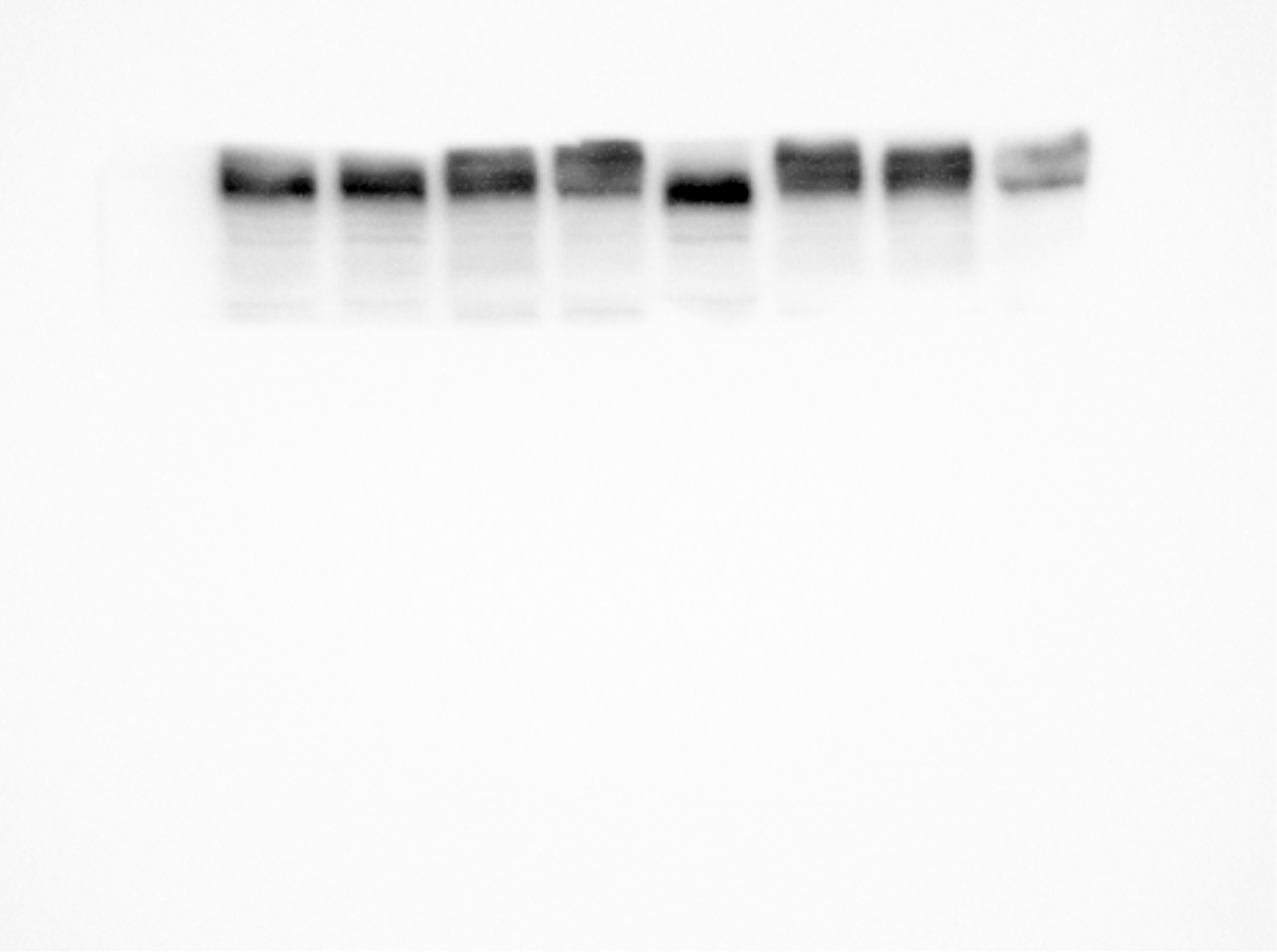 |
FH Weihao (Verified Customer) (04-11-2022) | Good antibody for mouse BMDM! not for human MDM 1:500 for IF 1:2000 for WB
|
FH Marina (Verified Customer) (11-22-2021) | 2 bands visible, unclear which is the right one, although size is ok-ish for both. Both bands are quite weak.
|
FH Tom (Verified Customer) (02-19-2021) | HEK293 lysate (10ug) subjected to SDS-PAGE and transferred to nitrocellullose. Membrane blocked in 5% BSA for 1 hour prior to incubation with antibody (1:1000 in block) overnight at 4 degrees. Band detected using anti-rabbit HRP secondary.
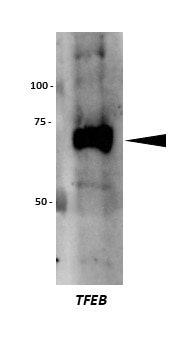 |
